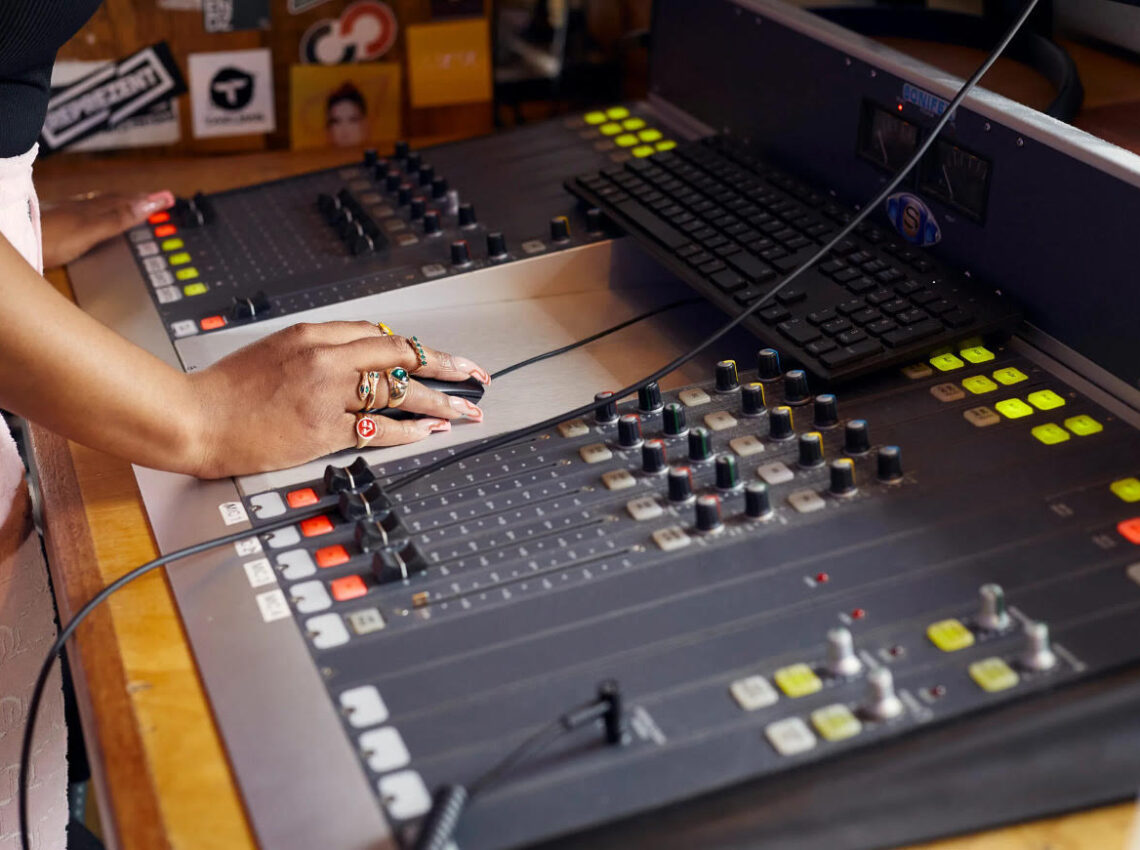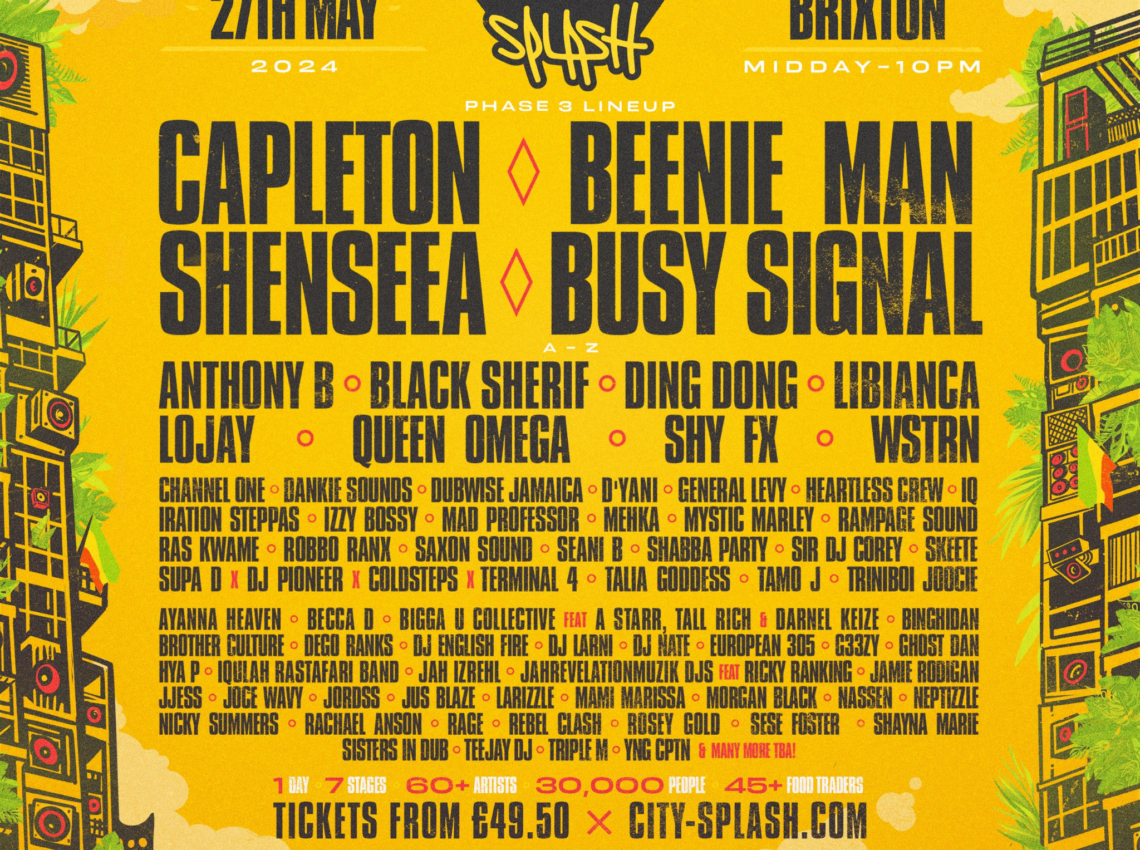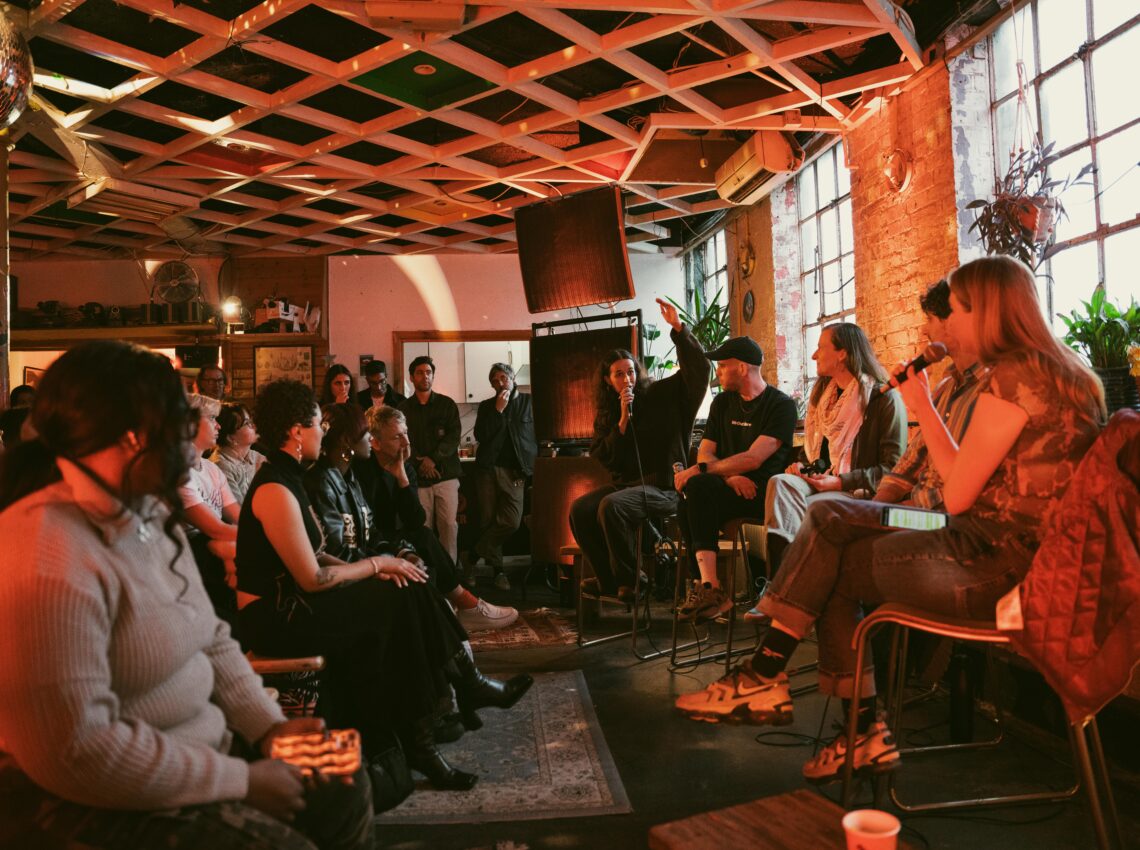Independent Music Platforms Need Our Help

When we’re talking about independent music in the UK, there is no name as undoubtedly important as Reprezent Radio. It’s been an integral pillar to the careers of stars like Stormzy, Jamz Supernova and Femi Koleoso from Ezra Collective. Its programming constantly features talents who are underrepresented, unsigned and sometimes unheard of, bringing to light their unearthed potential. Resultantly, it’s a key part of the cultural pipeline that creates the rich and diverse arts scene that we’re blessed with in the UK. Independent music platforms like Reprezent allow new talents to access a wider audience and the key resources for their careers to flourish; they embolden our tastes too, unleashing new, innovative sounds from underground niches for us all to discover.
(Photo taken by Ayesha Kazim)
It’s dismal then that Reprezent is suffering a serious case of underfunding. In February, they launched their crowdfunding campaign, asking their community to donate in order to help them secure sustainable income streams. Their Instagram page was immediately populated by close-up videos of support from the likes of BBC’s Annie MacManus, ITV’s Duncan Golestani and others. Each of these espoused profoundly emotive messages like Fraser T Smith’s stern decree that independent music platforms are essential for new creative communities to ‘blossom and shine’ and Remi Burgz’ heartfelt insistence that Reprezent is ‘a flower that deserves to grow and we’ve got to keep watering it’. The core essence of all of these impassioned monologues was that independent music platforms are an essential public good, not only beneficial for our entertainment, but essential to the wellbeing of the people it offers opportunity to. Matt Griffiths, the CEO of Youth Music (the UK’s leading young people’s music charity, which works closely with Reprezent), explained this sentiment to me as such: “Anywhere where music can make a particular difference needs nurturing and it needs constant sustainable support.”
For many reasons, I can empathise: I began a career as a DJ in late 2022 and I felt first-hand how important it was to connect with independent music platforms to flourish in the scene. A highlight of that journey was performing a guest DJ set on Reprezent Radio for Els Marshall in summer 2023 (you can listen to my mix here). It was a massive turning point in the public’s perception of me. Whilst I already had the talent to be recognised as a great DJ, this co-sign from a key platform in our country’s music scene validated that talent and bolstered my approval. Class and visibility are too often impenetrable barriers to success in this country’s infrastructure, and that’s true across industries. It feels radical then to reminisce on the role Reprezent played for me, and continues to play for others like me, in which opportunities to success are offered charitably to those who lack access to support and meritocratically to those who clearly deserve support on account of their talent.
Even for its audience, Reprezent plays an important role in championing accessibility. Its hosts, its guests and its music selections exemplify class, race and culture in a way that we too rarely see in the UK. Working class listeners from global majority ethnicities can watch interviews, listen to artists and engage with hosts that look like them and who mirror their experiences. These myriad identities exist in vibrant cohesion alongside each other, portraying multi-culturalism in its brightest light and most honest form. Independent music platforms as a whole are a gift for this joyously relatable nature.
It’s even more dismal then to acknowledge that Reprezent Radio is not alone in needing help. Youth Music stated that 55% of its funded partners (including independent music platforms) have reported a serious decrease in income and funding. Over the past few months, platforms like Loose.FM and Brixton Radio have also launched crowdfunding campaigns, citing increased operating costs and unaffordable rent prices as insurmountable struggles- their audiences thus left in a state of precariousness, potentially to be deprived of their services. The widespread prevalence of this lack, affecting platforms that cumulatively reach thousands (potentially more) and empowers some of our country’s most competent talents, clearly constitutes a crisis.
Stations like Loose.FM too played a role in my career, allowing me to host radio shows and thus providing me with the opportunity to engage with an audience over the airways, curate cohesive playlists and conduct live interviews. They imbued me with the necessary skills to enact an impressive progression across both my creative and corporate careers. Thus, it’s not just music that these platforms offer support in; they offer young people key professional skills, effectively shattering the glass ceiling that contains them within the inescapable and anarchic ‘underground’ that suffocates their potential too often.
(Me at Loose.FM, photo taken by Miro McCarthy-Alleyne)
Reprezent Radio’s Founder and CEO, Shane Carey, is starkly lucid of the practical benefit organisations like his hold. He described Reprezent Radio to me as a ‘youth development organisation’ rather than just a radio station- and he grinned as he did so, clearly proud of this aspect. His smile widened further as I spoke to him about the way in which Reprezent Radio impacted me and other young people in its community, but this moment of bliss only served to accentuate the tragic realism of this crisis, the future of the station in disarray and all the support it offers to young people deplorably at risk of loss.
One of its current trainees- an interior stylist and aspiring media personality named Shari– spoke to me about the benefit the station is serving to her career now: “Last week, I hosted my first radio show and it’s because of Reprezent that I was able to do that. There are so many things on [the Reprezent Radio course] that I’ve implemented straight away into my own projects. I can already tell that I’ll have so many opportunities with them in future”. Home Radio, the show she is referring to, had its debut on Brixton Radio just a week ago but she was pain stricken when she learned that it too had fallen victim to this funding crisis (you can listen to Home Radio here). She has since endeavoured upon a campaign to speak up about it, draw awareness to its causes and offer potential solutions.
(Shari at one of her DJ sets, Photo taken by Josue Dedji)
She laments that investment into corporate businesses cuts people in local communities out from benefitting from independent grassroots platforms. More bluntly, Matt explained to me that there are major labels, DSPs and other corporations who are “making some good money” off of the “work that young people are creating” and “we need to see the cycle of that money going back into the grassroots”. Together, they both seem to identify that there is a friction between large corporations and independent grassroots platform in the music world. The higher the profits these corporations accumulate, the more the fabric of grassroots music seems to erode.
It’s an unjust phenomenon. Many of the talents these independent music platforms spark careers for proceed to make music, work roles and offer time to organisations that profit billions off of their service. They’re reliably enriched by the work of independent, grassroots platforms but do little to give back to them, perpetually draining them of their resources in effect.
In worlds like sports, there is an intentional, systemic push to combat these expropriations of resource. We can easily name Football Beyond Borders, The Free Kicks Foundation, Football for Humanity and bountiful other initiatives as examples of positive attempts to give back to the grassroots initiatives that build talents up for large corporations to profit off of. The UK music licensing company, PPL, recently set a positive example for the type of action that the music world needs through their £1m annual ‘give back fund’ which would see financial support going directly to grassroots music initiatives. But widespread inaction from other players in the industry still sullies the world and leads independent music to decline. Matt calls on those with the power to intervene: “Back young people!” and continues, “their music and creative potential [is] essential for wider society and secures the future for a vibrant, diverse music industry: creative young people at the heart, leading the way and deciding the future!”
He’s not only speaking to corporations, he’s addressing political actors too.
The lack of any intentional solution to this problem traces back to government policy. Where government support is present in much of the charitable initiative we see in sport, there is very little help for the creative industries. But with the dire ongoing situation, it’s clear that some intervention is needed now. Youth Music reports that 82% of all its funded partners are reporting an impact on children and young people they work with as a result of the cost of living crisis, a clear example of the way in which this situation is connected to many other structural issues.
More specifically, the policy approach of austerity, which entails stringent cuts to public infrastructure seems to be culpable for this problem too. Local authorities are spending 77% less on youth services (a £1bn decrease in real terms) and we can see vital infrastructures subsequently fraying: youth clubs closing; independently owned arts platforms in crisis; funding sources increasingly depleting. In 2020, the government paid a peer £200m of taxpayers’ money to provide Britain with £4m of PPE equipment to help tackle the COVID crisis (and it all ended up being unusable). It feels slightly insidious then that the vital resources we need are being depleted whilst such vapid and corrupt expenditures are able to come out of our pocket. The money is clearly there.
Austerity (especially when mixed with this type of crony corruption) is a symptom of neo-liberalism, which is a political system where resources of the state are fed into the private sector whilst public infrastructure is depleted and neglected: governments absolve themselves of any responsibility over the welfare of their citizens; corporate players enjoy ever-expounding profits in the face of the world’s depravity; business and government alike develop an obsession with statistics, growth and the market to the detriment of real, working class people.
In a way, it’s like large scale gentrification, our necessary support systems laid to waste for the sake of private enterprises that have no real care for our communities. Shari, linking her feelings about Reprezent to her practice, explained that buildings and public infrastructures should stand to improve the communities they exist within. Wealth does not passively trickle down from ominously towering high rise developments, nor does it diffuse outwards from ever-metastizing supermarket chains. Instead, it is fed bountifully into areas through conscious investments into culture, pragmatic confrontations of inhabitants’ key problems and consistent funding into public infrastructure. Independent music platforms like Reprezent and Brixton Radio are (and will hopefully continue to be) perfect examples of that: they’re situated within communities where young, unsupported talents need nurturing, encouragement and visibility to attain more success and they’re offering them that! Both of them also give up their space for training and cultural gatherings regularly, fulfilling their purposes as foundational hubs for their community.
(Shari on one of her styled sets)
This mode of business is the antithesis to the neo-liberalism of corporations that operate with complete apathy for our local communities and it acts in complete opposition to neglectful austerity policies of soulless government leaders. Young people need safe spaces to have their wellbeing nurtured and the professional world as a whole relies on the nurturing of these young people to acquire the talent it needs. Thus, it is essential that we hold all those who have the power to intervene accountable when it comes to a crisis like this, the fulmination of which could result in the overwhelming decay of our children’s future, and the utter decline of our current cultural world. In concrete terms, that’s no safe spaces and no culture: a wasteland.
Shane warns: “If you don’t start investing in young people now, soon there’ll be nowhere to cherry-pick from and the creative industries and society would be poorer for it.” He’s absolutely right and we need an intervention now to steer our independent music platforms to a brighter future.
If you’d like to donate to Reprezent Radio’s crowdfunding campaign, please do so here: https://www.crowdfunder.co.uk/p/savereprezent
You can also engage with Youth Music’s website here: https://youthmusic.org.uk/
Separately, you can also email your local MP to ask them what they’re doing to intervene on this crisis.




![ZINO VINCI’S ‘FILTHY & DISGUSTING’EP BRINGS YOU TO THE CORE OF THE ARTIST [@ZinoVinci]](https://guap.co/wp-content/uploads/2023/10/Zino-4.jpg)





![Remel London’s [@Remel_London] “Mainstream” is a must attend for upcoming presenters!](https://guap.co/wp-content/uploads/2017/02/REMEL-LONDON-FLYER-FINAL-YELLOW-COMPLETE-1.png)